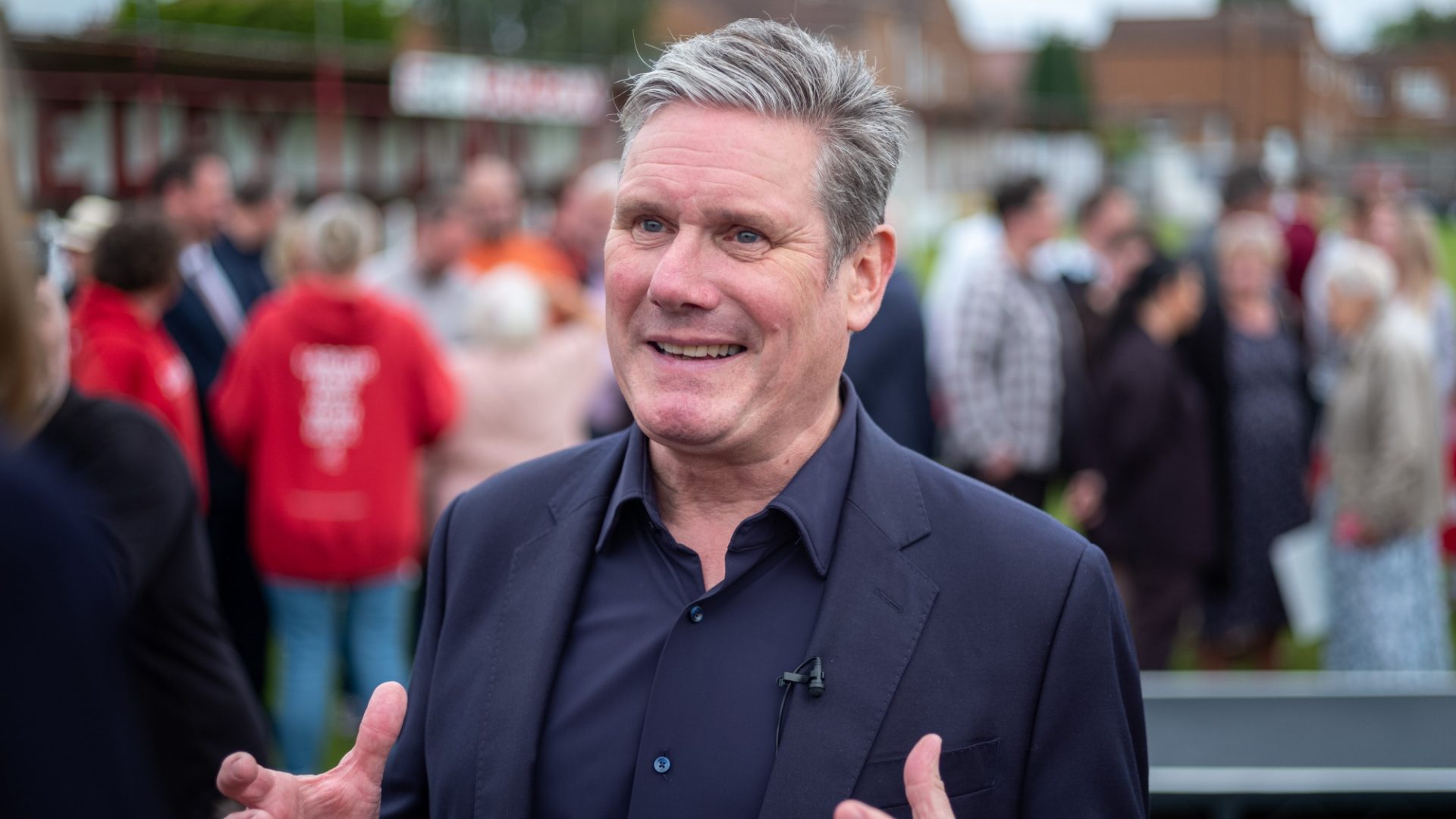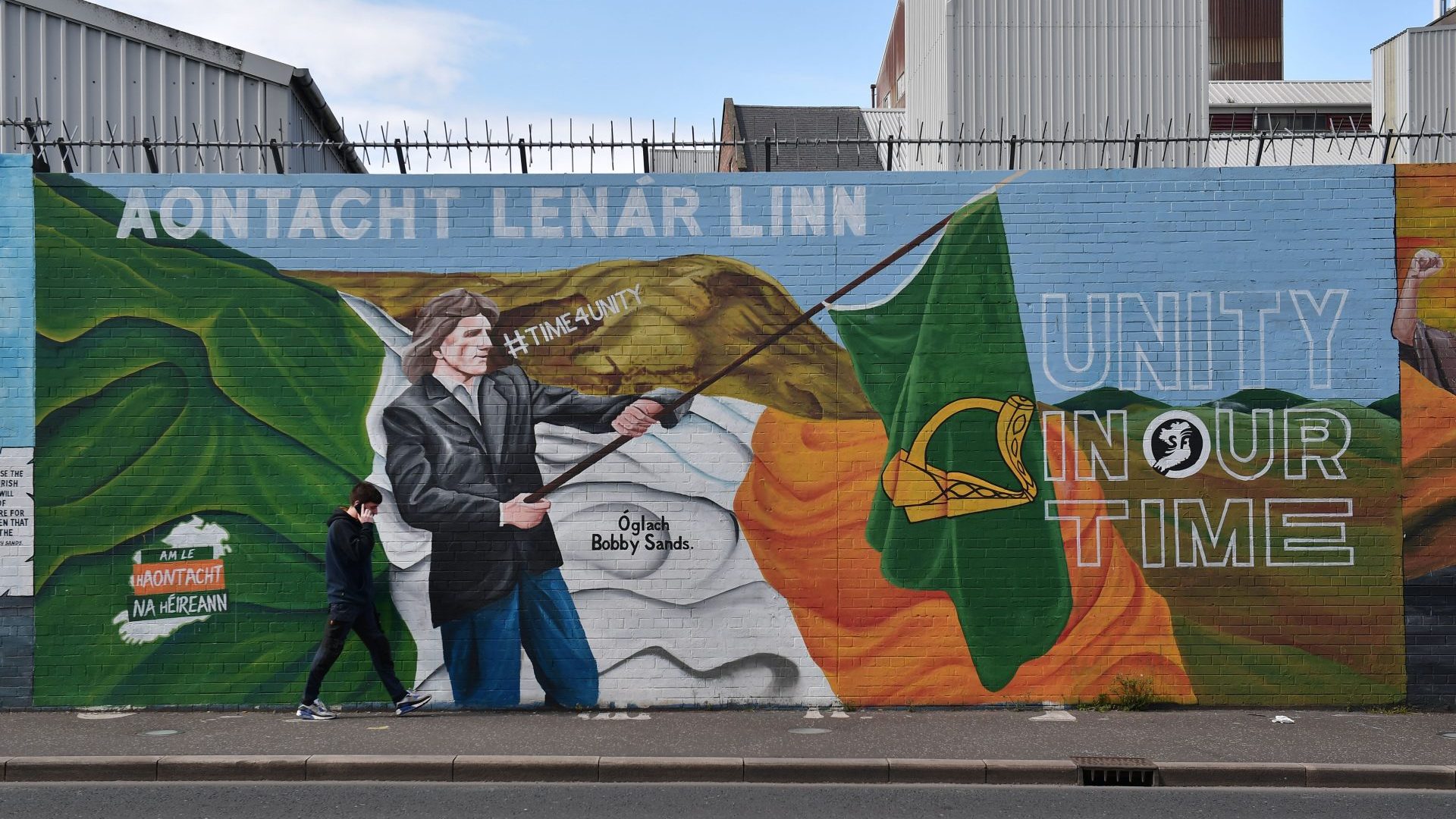I agreed with a lot of “Starmer knows ‘Make Brexit work’ is a lie” (TNE #349), but something else Sir Keir Starmer knows is that a return to the EU is not on the table right now, which is why he is not spending time and energy on it.
I could do without some of his language, and he could do with being more open with the country about the direction of travel. Just look at the polls; the people increasingly know this was a mistake.
But however bad it tastes, this is the right course of action for right now.
Kate Bright
Two scenarios: in one, Keir Starmer commits to rejoining the EU and spends much time in Brussels for talks and photo-ops. The Brexit media goes into overdrive, the parliamentary Tory party is re-energised, and political debate is once again dominated almost entirely by Brexit rather than the various failings of an appalling government.
In the other, Labour stay on their current course, the debate stays focused on the government’s deficiencies, and meanwhile the polls continue to move towards Rejoin.
I know which of these scenarios is more likely to ultimately result in Rejoin.
Ben Young
Ipswich, Suffolk
I commend Peter Corr’s article. Yet, while we Europeans regret the loss of the UK to the family of sovereign nations, one of the pertinent issues not sufficiently discussed in the UK is the damage in trust from Brexit, and our realisation that your politics now lacks “good faith” principles.
This renders us in the EU very cautious of returning to (re-) entry negotiations with any UK government unless it can secure significant majorities for both rejoining and becoming a team player within a union of nations, and one that is committed to staying the course without pulling the exit cord again.
After all, it was the UK that declined to sign the Lisbon Agreement unless it included the article eventually governing Brexit – something requested by Rupert Murdoch-owned media outlets at the time.
Brexit, however, has at least delivered for us in the EU, in that all member states (and the many wishing to join us) have maintained a consistently much higher percentage approval among our populations than had been conceivable prior to Brexit and the incrementally worsening consequences for healthcare, industry, finance, legal standards, environmental protection and cultural life in the UK.
Ekkehart Staufenberg
The best response to Keir Starmer’s “clever” stance on Brexit was offered by the leader of the Rejoin EU Party that appeared on TNE’s website recently: “That leaves us in a state where, as a society, we’re asked to vote for someone saying the opposite of what we believe based on the assumption they are lying. That’s a horrific state for politics to be in.”
Mark Hawley
While Labour seems to have some ideas about investment in renewables, but no intention of rejoining the single market, let alone the EU, most voters don’t have much enthusiasm for the party’s offering – and many still don’t know what it is. As things stand, I can’t vote Labour this time, just as I couldn’t in 2019.
The Uxbridge result and ULEZ fiasco demonstrates just how damaging Labour’s internal divisions and muddled thinking still are. It is bonkers to charge people every day when they have no choice but to drive in a ULEZ.
In Germany, you pay a one-off fee, the level of which is determined by the emissions from your vehicle, so nearly all vehicle owners pay a small amount rather than relatively few being hammered every day. Daft solutions lose elections… learn from the EU, but better still, commit to rejoin it!
Phil Green
During a recent trip through Germany, I had to drive through three Umweltzonen – their equivalent of ULEZ. Thanks to good online and billboard information and online purchasing, I was able to buy a sticker (18 euros) that permits me to drive through any zone in the country for as long as I own the vehicle. The price depends on the category of vehicle.
Similarly, the “vignette” you have to buy in Austria and Switzerland to drive on their motorways also covers low-emission zones. The technology – linked to your Satnav – also causes the car to switch automatically to electric drive when entering a zone if you have a hybrid.
So millions of people pay a relatively small amount, annually or less frequently, rather than far fewer, mostly local people who have no choice but to enter a zone getting hammered every day. All the latter does is take away money they could put towards a hybrid or EV, add to their financial woes and cause massive resentment.
The London – and UK generally – systems are crass, counter-productive and, as Uxbridge shows, politically disastrous.
Rex Nesbit
Alnwick, Northumberland
PR disaster
I have cut out the map used to illustrate “Can Spain hold back the right?” (TNE #349). The percentages achieved by far-right parties in legislative elections (Italy 26%, Sweden 20.5%, France 18.7%, Britain 2%) serve as a good illustration of why we should not introduce proportional representation.
David Murray
Witton, West Midlands
A disservice
The gratuitous and reckless bigotry in James Ball’s article on QAnon (“A digital virus is running free”, TNE #349), which refers to “cult-like practices of Scientology” and “pseudoscience”, is false and offensive to millions who practise the religion around the world.
Scientology has been recognised as a religion by governments, courts and religious experts around the world for decades. We have a long history of fighting for religious freedom for all religions. It is built into the creed of our church and is part and parcel of who we are.
Your comparison and false characterisation of Scientology can only be described as hate propaganda and disinformation – the very subject you address in your article. You are doing your readers a disservice.
Karin Pouw
Church of Scientology
Huw and cry
Innocent until proven guilty is still the accepted principle in British justice. Matthew d’Ancona’s article (TNE #349) finds Huw Edwards guilty by media, not only social, repeating claims and alleged behaviour when the “accused” is in no position to set the record straight. This was a wholly unnecessary piece of journalism.
Gabrielle Suff
Scars of war
The occupation of the Channel islands (“When the Holocaust came to British soil”, TNE #349) was a mixed business: Alderney was indeed horrific, but was largely managed by the SS. The rank and file of German soldiers occupying the islands were as terrified of the SS as the local population.
The museum in Guernsey that we visited had a few happier stories (such as that of the German officer who played the organ, not realising that underneath the organ seat was a radio) and made it clear that Germans shared in the food shortages that grew worse towards the end. There is also a cemetery where over 100 German servicemen are buried, many of whom drowned in the sinking of a ship off the islands.
It’s worth reminding your readers – since this is a newspaper that, being European, is keen on building bridges – that all wars affect all people, but particularly the innocent on all sides.
Chris Shepherd
Right on queue
I tried to explain to my Leave-voting acquaintances that the travel chaos described in “Here come the summer queues” (TNE #349) was a natural consequence of how they voted, but they simply replied that it was OK as they don’t want to go anywhere else.
William Locke
Law of the land
Alan Craw is absolutely right (Letters, TNE #349) that land should be taxed, but in order to do this we have to know who owns it, and exactly how much land in each case.
Since properties – land with houses – belonging to ordinary citizens are delineated in the Land Registry, which must be informed if the property changes hands through sale or inheritance, why can owners of vast acres escape? They may place their lands in trusts or run them as businesses, with management bodies, but the land itself remains.
The area of all lands should be delineated on a cadastral map, then these lands may be taxed. If tax is avoided or the owners fail to register the land, then perhaps farming subsidies could be refused?
Alisoun Gardner-Medwin
Epic fail
Carol Hedges makes some pertinent observations on Boris Johnson’s choice of names for his latest child (Letters, TNE #349). But there is more.
Homer’s most frequent epithet for Odysseus is “polymetis” – literally “of many wiles”, more colloquially “con-artist” or “twister”. And yes, he is indeed cursed by Poseidon, but more significantly he is under the protection of Athene, who ensures that he, the last survivor of his fleet, eventually drags himself ashore to the sanctuary of the Phaeacian court.
Just as the Iliad, with its bleak picture of heroes struggling for meaning in a hostile universe, is regarded as the root of the tragic tradition, so the Odyssey, whose hero enjoys the ultimate impunity of divine protection, lies at the root of the comic tradition. We must judge for ourselves which view is planted in our reality.
One point of divergence, on the other hand, is that although Odysseus is marooned for years on the island of the nymph Calypso, who makes love to him constantly, in his case his heart remains steadfastly loyal to his wife back home, Penelope.
In some ways Johnson understands himself better than we sometimes give him credit for…
Charles Baily
Bedford, Bedfordshire
Lack of energy
David Hogg (Letters, TNE #349) trots out a common trope: “If the hydrogen is produced using electricity from solar, wind, tidal, or nuclear sources, it is green hydrogen”. This is not possible here, because renewable energy is so weak that it is only able to partially offset the use of fossil fuels for generating electricity.
In the UK we have around 20GW of wind, solar PV, nuclear and biofuel electricity (on a good day) and typical daytime electricity use is 40GW (it can be a lot higher). So clearly, there will be no renewable energy to spare until a) there is two or three times more renewable energy than we have now, and b) it is reliably there all the time.
At present our renewable energy is erratic and unreliable. Solar PV is off for between 12 and 16 hours every single day. Both solar PV and wind can be zero for up to two weeks during the winter.
OK, what about battery storage? We have 1.3GWh of batteries installed, but that would support the 40GW grid for two minutes. Batteries are hundreds of times too small to be useful. And they are a fire risk – three mega batteries have already caught fire in the UK.
Brian Pollard
Launceston, Cornwall
Apathy rules
Whatever conclusions are drawn from the recent by-elections (“The Tory hate mob is licking its lips”, TNE #349), the average turnout was 45%. This not only nullifies any mandate, it represents a crisis for the concept of representative democracy. When over half the electorate do not feel politics is relevant to their lives, that should generate serious discussion.
Unfortunately, it perhaps also suggests that the possibility of this is no longer likely.
Brandon Prince



